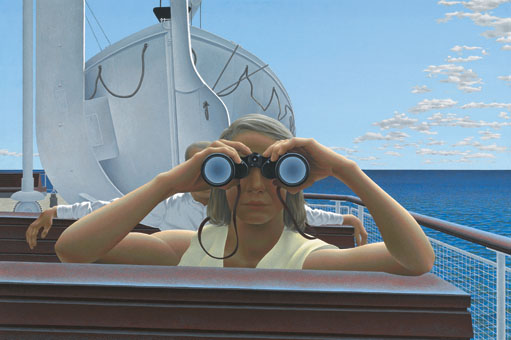Jean (John) André
Jean (John) André (b London, Eng 1750; d Tappan, USA 1780), decorator, painter and topography designer, was born to a Swiss Calvinist father and a Huguenot mother named Giradot. André arrived in Québec, either with Guy Carleton in September 1774, or just before him, and was sent to Philadelphia, where the new Congress was meeting. The following year he was among the defenders of Fort Saint-Jean (see Saint-Jean-sur-Richelieu), with officers René-Amable Boucher de Boucherville, Antoine Foucher, Antoine Juchereau Duchesnay de Fossambault, Hertel de Rouville Jr, Joseph-Hyppolite Hertel de Saint-François, Georges-Hyppolite Le Comte Dupré, Dominique-Emmanuel Lemoyne de Longueuil, Samuel Mackay, Sr, François-Marie Picoté de Belestre, Charles-Roch Quinson de Saint-Ours, Louis-Antoine d'Irumbery de Salaberry and Edward Williams.
Major André was appointed, along with General Richard Montgomery, to negotiate the surrender of the fort. In the confusion that led some of his former friends to abandon the Crown, he was considered for a while to have chosen the Congress but he was, in fact, serving General Benedict Arnold. He was on his way back to Québec when he was arrested, near Albany, in the possession of secret documents, court-martialled by former friends (such as Knox and Lafayette) and executed in 1780. He was buried as a hero in Westminster Abbey.
André's 1778 production of Meschianza (written by General John Burgoyne to honor Lord Howe, who was recalled to England), is considered the first American pageant. While a prisoner with other royal officers in Bristol (a suburb of Philadelphia), he served as a decorator, actor and prologue writer in the now abandoned Southwark Theatre. His life as a spy has inspired at least 3 melodramas: 2 by William Dunlap and one by Clyde Fitch. His illustrated report on the battle of Fort Saint-Jean, the contents of which are confirmed by the reports of Foucher and Salaberry, is with the Canadian Archives.

 Share on Facebook
Share on Facebook Share on X
Share on X Share by Email
Share by Email Share on Google Classroom
Share on Google Classroom


